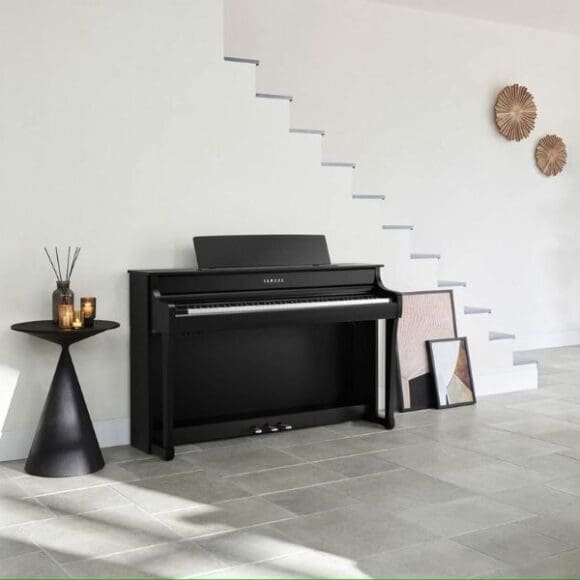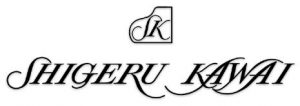New to playing the piano? Unsure about where exactly ‘middle C’ is, never mind what type of piano you need?
Buying a piano can be mind-boggling at the best of times but never more so than when you’re just starting out.
As a beginner, choosing the correct piano is essential. Get it right and it could be the start of something beautiful. Get it wrong and your piano playing days may be over before they’ve even begun.
But how do you pick the ideal piano for a beginner?
That’s where we come in. At Richard Lawson Pianos Ltd, pianos are what we do – upright, digital, grand, we love them all! And our team of resident experts are here to share their expertise and help you to find the perfect instrument to accompany you on this exciting new journey.
Why learn the piano?
The opportunity to learn to play a musical instrument opens a doorway to creativity, artistic expression and pleasure.
Pianos are an excellent choice of instrument to learn. Not only are they beautiful in their own right, but they are equally versatile for playing alongside other instruments.
For children just starting out, a piano can help to improve dexterity, build finger strength and develop an aptitude for reading. It also acts as an excellent bridge to learn the fundamentals for playing other instruments.
What should a beginner look for in a piano?
You need to find an instrument that will offer you the right quality of sound, and the potential to develop.
At Richard Lawson Pianos, we have a wide range of suitable pianos for sale and the expertise to help you to make the best choice, but some of the key things to consider are:
- Size – when new to a room, pianos can feel large and imposing. You may find that the ‘ideal’ spot where you pictured it sitting doesn’t actually work quite as well as anticipated. Starting small not only gives you more options in terms of where you can position the piano but will also be less of a shock to the system when it arrives.
- Price – in the same way a new driver is unlikely to buy a Porsche, it’s doubtful you really need a top piano model if you’re new to playing. That said, if you’re serious about learning nor do you want to go too basic either. Instead, it’s important to look for a piano that is a middle ground, one that will allow you to build up your playing.
- Longevity – whilst as a beginner, you don’t need everything that’s available from an all singing all dancing piano, you do want to be confident you’re investing in a piano that you won’t outgrow. Yes, you can learn to play on a keyboard with just 66 keys but if you’re really eager it makes sense to invest in an instrument that offers more permanence. 72 keys are enough to play most music, but 88 is the magic number for a traditional piano, and the best option if you want to commit to learning without the need to keep upsizing.
Don’t forget you’ll also need a stool – being comfortable when you’re sitting in a new position is crucial to avoid aches and pains developing and encourages you to sit down and practice. Take a look at our blog ‘How to pick a piano stool’ for guidance on finding the right one – or talk to a member of the team.
Pianos suitable for beginners
When it comes to pianos, there’s a wealth of choice, but let’s keep things simple.
There are 3 main types of piano most suited to beginners – upright, grand and digital. And whilst grand is often reserved for the more professional player, there’s no reason it can’t work for a beginner too. Let’s take a closer look at the options…
Uprights
Yamaha upright piano models are a great choice for beginners. ‘Upright’ simply means that the strings are arranged vertically, so the piano takes up the minimum space, in contrast to the horizontal layout of a grand piano. The classic choices in this range are the Yamaha U1 and the Yamaha U3.
These two models offer a perfect balance of classic design with modern precision construction and are considered by many to be a benchmark for pianos for beginners. They have an improved soundboard and hammers, giving a richer tone, with a reinforced frame that is made to last.
The large music stand is perfect for beginner pianists, and the soft-close fallboard protects a beginner from trapped fingers and damaged keys by slowing the lid closing. The two models are similar, though the Yamaha U3 is slightly taller and deeper than the Yamaha U1, which results in increased richness and resonance in the tone. Both are excellent pianos.
Grands
If you have the space for something a little larger, then your next step would be the small to medium grand piano range. Whilst you might not think of this as a piano for beginners, these models are an investment and provide scope to progress beyond being a beginner.
A popular choice would be the Yamaha C1 model, which provides a beautiful depth of sound and key range. The C1 is 5’3” long; the Yamaha C2 model, with an extra 5”, makes full use of the longer strings and larger soundboard to offer a fuller range, which is characterised by a beautiful bass resonance that will enhance your playing.
Digital
Digital pianos offer excellent sound combined with modern-day convenience. Being digital, there are no strings which means you don’t need to worry about tuning. And with no strings to house, digital pianos are typically much more compact, lightweight and portable – an advantage if you need to move about for lessons.
Other popular benefits of digital pianos for beginners are the additional options of volume control and plugging in headphones – ideal for learners who are unlikely to hit the right note first time!
Best buying options for beginners
- Hire – hiring can be a great option for anyone new to playing. Offering you the flexibility to ‘try before you buy’, it allows you time to make sure you’re going to stick with playing before committing to a sale. Not only can you experiment with different types of pianos to suit your playing style, but you can test out different shapes and sizes in your home setting.
- Finance schemes – the initial outlay for a new piano can be off-putting. Ease the strain and look out for finance options and interest-free loans to help manage the financial commitment.
- Buy pre-loved – buying a pre-owned piano can dramatically reduce the cost whilst still offering you an excellent instrument – making great financial sense for anyone but especially for a player who’s just starting out. To find out more about buying second hand, check out our blog on the topic.
Talk to the piano experts
Wherever you’re at in your piano playing journey – be it a new player or a seasoned professional – our team of piano experts are here to help.
We offer piano hire if you’re not yet ready to purchase a piano, and we’re also part of the ‘Take it Away’ finance scheme.
Why not visit our showroom or contact us to see how we can help with finding the right piano for you?
















 Reviews
Reviews